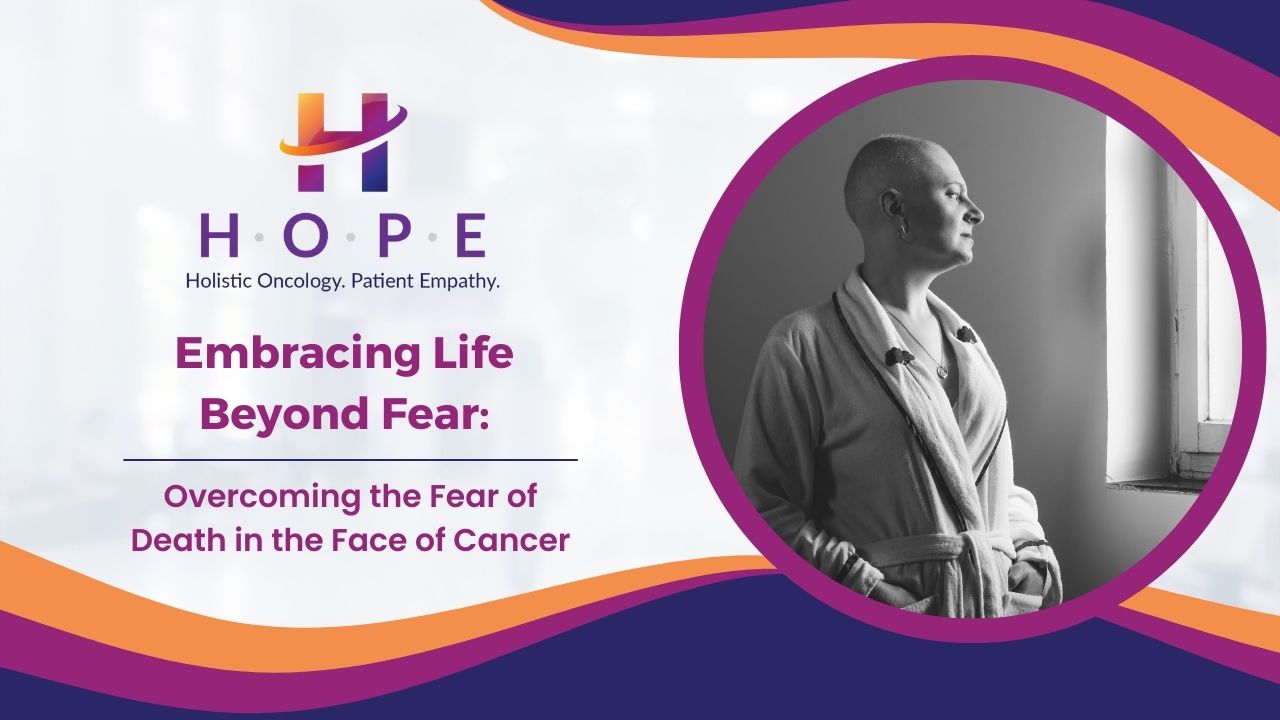Embracing Life Beyond Fear: Overcoming the Fear of Death in the Face of Cancer
Introduction:
A cancer diagnosis often introduces a profound and existential fear, rooted in the uncertainty of life and the possibility of death. Coping with the fear of death due to cancer is a complex and deeply personal journey. In this article, we explore strategies for navigating and overcoming this fear, emphasizing the importance of emotional resilience, support systems, and embracing life even in the shadow of illness.
I. Understanding the Fear:
The Existential Challenge:
Facing one’s mortality is a profound existential challenge, especially when grappling with a life-altering illness like cancer. The fear of death is not uncommon, and acknowledging it is the first step towards addressing it.
Uncertainty and Anxiety:
Cancer introduces uncertainty, and this uncertainty often gives rise to anxiety about the unknown. Fear of the future, concerns about the impact on loved ones, and the fear of leaving unfinished business can contribute to the overall fear of death.
II. Cultivating Emotional Resilience:
Embracing Mindfulness and Acceptance:
Mindfulness practices, such as meditation and deep-breathing exercises, can help individuals stay grounded in the present moment. Acceptance of the current reality, without dwelling excessively on an uncertain future, can reduce anxiety and fear.
Expressive Writing:
Journaling and expressive writing provide an outlet for expressing thoughts and emotions. Writing about fears, hopes, and aspirations can be cathartic and contribute to a better understanding of one’s emotions.
Seeking Professional Support:
Therapists, counselors, and psychologists with experience in oncology can provide valuable support in addressing existential fears. Professional guidance can help individuals navigate complex emotions and develop coping strategies.
III. Building a Support System:
Open Communication with Loved Ones:
Sharing fears and concerns with trusted friends and family members fosters a sense of connection. Open communication allows loved ones to provide emotional support and encourages an environment of understanding.
Joining Support Groups:
Connecting with others who are facing similar challenges can be immensely comforting. Cancer support groups offer a space for individuals to share experiences, exchange coping strategies, and find solace in a community that understands the unique aspects of living with cancer.
Spiritual and Religious Support:
For those with spiritual or religious beliefs, seeking support within a faith community can provide a sense of purpose, comfort, and guidance. Spiritual practices often offer frameworks for understanding life, death, and finding meaning in difficult circumstances.
IV. Focusing on Life Beyond Cancer:
Setting Goals and Creating Meaning:
Setting achievable goals and finding meaning in daily activities can shift the focus from fear to a more purposeful life. Whether it’s spending time with loved ones, pursuing a passion, or contributing to a cause, creating meaning can be a powerful antidote to fear.
Quality of Life vs. Quantity of Life:
Shifting the focus from the quantity of life to the quality of life can be transformative. Embracing each moment, cherishing relationships, and engaging in activities that bring joy contribute to a more fulfilling life, irrespective of its duration.
Legacy and Leaving a Positive Impact:
Reflecting on the positive impact one can leave behind, whether through relationships, contributions, or shared experiences, can help shift the narrative from fear to a focus on leaving a meaningful legacy.
V. Embracing End-of-Life Planning:
Advance Care Planning:
Engaging in advance care planning involves making decisions about medical care preferences and end-of-life wishes. While these conversations can be challenging, they empower individuals to have a say in their care and provide a sense of control.
Celebrating Life Milestones:
Rather than fixating on the fear of death, celebrating life milestones, both big and small, becomes a way of affirming the present. Birthdays, anniversaries, and other significant events become opportunities to appreciate the journey.
Conclusion:
Overcoming the fear of death due to cancer is a deeply personal and ongoing process. It involves acknowledging and confronting fears, cultivating emotional resilience, building a strong support system, and focusing on life beyond the shadow of illness. While the journey may be challenging, many individuals find that by embracing the present, connecting with loved ones, and creating meaningful experiences, they can transform the fear of death into a celebration of life’s enduring moments. Ultimately, it’s about finding a path that brings peace and acceptance, allowing individuals to live fully, even in the face of life’s greatest uncertainties.

